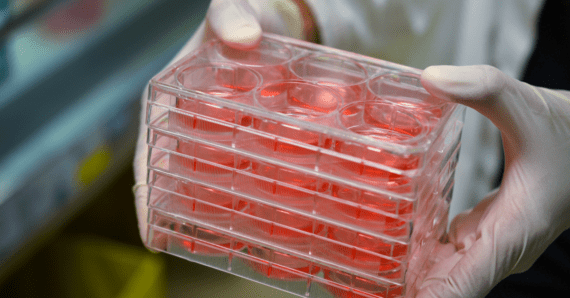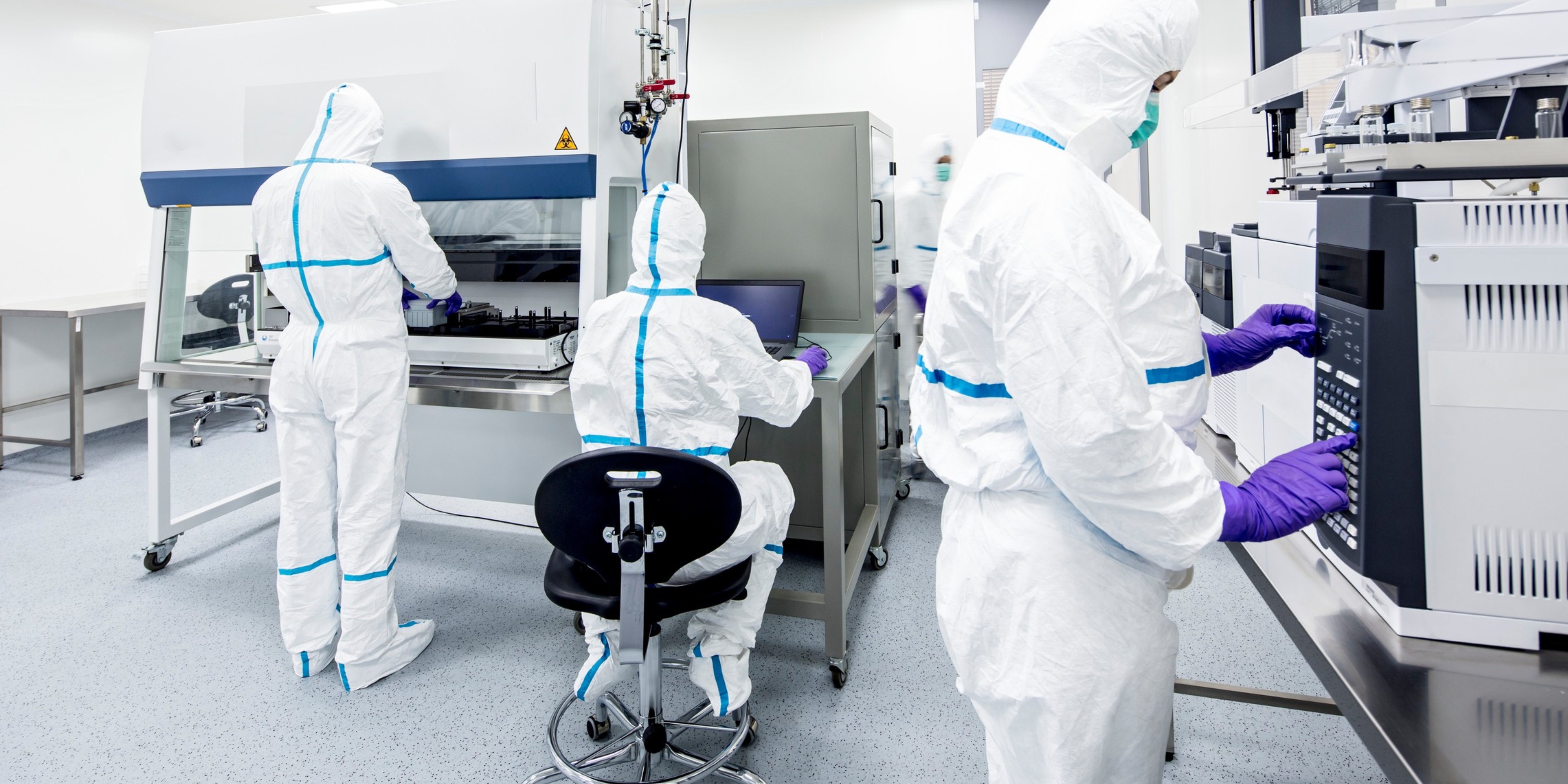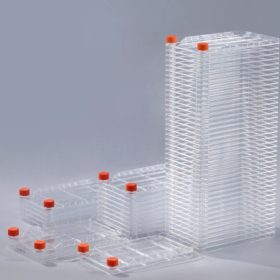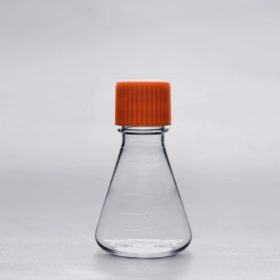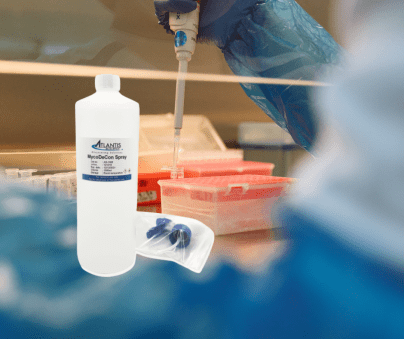Cell culture plays a pivotal role in various fields, from academic research to biopharmaceutical manufacturing. As the demand for cell-based products and research outputs continues to rise, the need for scalable and efficient cell culture processes becomes increasingly apparent. Scaling up cell culture involves transitioning from small laboratory-scale cultures to larger production scales. This process is not without its challenges, requiring careful consideration of factors such as equipment, media, and process optimisation. Where are the scaling-up guidebooks when we need them? In this blog, we will explore the key aspects of scaling up cell culture and how researchers and industry professionals can navigate the complexities to achieve successful small-scale to large-scale cell culture.
11 Things to Consider When You’re Planning to Scale Up Cells
1. Cell Type and Characteristics:
Understand the specific characteristics of the cell type being cultured. Different cell lines or primary cells may have unique requirements for growth, nutrient consumption, and sensitivity to environmental conditions. This information is crucial for designing an appropriate scale-up strategy.
2. Scale-Up Goals and Applications:
Clearly define the goals of the scaled-up process. Consider whether the purpose is to produce a larger quantity of cells, increase the production of a specific product (such as proteins or antibodies), or support more extensive experimental studies. The intended application influences the scale-up approach.
3. Equipment and Infrastructure:
Evaluate and invest in suitable equipment for the larger scale. This may include bioreactors, fermenters, or other specialised vessels designed for large-scale cell culture. Ensure that the infrastructure, including cleanrooms and support systems, can accommodate the increased scale.
4. Media Formulation:
Adapt cell culture media for larger volumes. The composition of the media may need adjustment to support optimal cell growth and productivity at a larger scale. Consider factors such as nutrient concentrations, pH stability, and the addition of supplements.
5. Process Optimisation:
Optimise the cell culture process for a larger scale. This involves refining parameters such as agitation, aeration, and mixing to ensure uniform distribution of nutrients and oxygen. Consider the impact of shear forces on cell viability and product quality and adjust accordingly.
6. Scale-Down Models:
Implement scale-down models in the early stages of development. These smaller-scale models mimic the conditions of larger cultures and provide valuable insights into how cells will behave at larger scales. Scale-down studies can help identify potential challenges and inform optimisation strategies.
7. Monitoring and Control Systems:
Implement robust monitoring and control systems. Accurate real-time monitoring of key parameters, such as pH, temperature, dissolved oxygen, and nutrient concentrations, is essential for maintaining a consistent environment and responding promptly to any deviations.
8. Sterility Assurance:
Maintain strict aseptic techniques to prevent contamination. As the scale increases, the risk of contamination also rises. Ensure that the facility design, equipment, and procedures support a sterile environment.
9. Quality Control Measures:
Establish quality control measures to assess the viability, growth, and product quality of cells at different stages of the scaled-up process. Regularly test for contaminants, monitor cell density, and assess product characteristics to ensure consistency.
10. Personnel Training:
Train personnel involved in the scaled-up process. Large-scale cell culture may require different skills and expertise than small-scale laboratory work. Ensure that the team is well-versed in the specific challenges and requirements of the scaled-up operation.
11. Regulatory Compliance:
Be aware of and comply with regulatory requirements. Larger-scale cell culture processes intended for therapeutic or commercial purposes may be subject to regulatory scrutiny. Ensure that the facility and processes meet regulatory standards and guidelines by the governing body of the country where you choose to set up your biomanufacturing lab.
You can find Singapore’s overview of GMP and GDP standards by the Health Sciences Authority (HSA) of Singapore here, and you can find Thailand’s overview of GMP standards by Thailand’s Food and Drug Administration (FDA) here.
Understanding Scale-Up in Suspension Cell Culture:
Suspension culture involves growing cells in a three-dimensional environment where cells are freely suspended in the culture medium. This is typically achieved using stirred-tank bioreactors, wave bioreactors, rotary cell culture systems, air-lift bioreactors, spinner flasks, and Erlenmeyer flasks to keep cells in suspension.
Characteristics of suspension cell culture:
- Cells are not attached to a substrate.
- The cell culture medium is well-mixed to ensure an even distribution of nutrients and oxygen.
- Suitable for the production of secreted products like proteins, antibodies, and certain types of vaccines.
In what case will scientists choose to scale up in suspension culture?:
- Biopharmaceutical production (e.g., monoclonal antibodies).
- Vaccine production.
- Large-scale cell expansion for research or therapy.
Understanding Scale-Up in Adherent Cell Culture:
Monolayer culture involves growing cells as a single layer attached to a flat surface, such as the bottom of a culture flask or dish. This method is common in laboratory settings and is suitable for certain cell types, particularly adherent cells.
Characteristics of adherent cell culture:
- Cells adhere to a solid substrate.
- Requires a surface treatment to facilitate cell attachment.
- Suitable for the production of cells or products that require adherence (e.g., some types of virus production or certain cell therapies).
In what cases will scientists choose to scale up in adherent culture?:
- Cell line development and maintenance.
- Vaccine production (e.g., some viral vaccines).
- Some types of gene therapy and tissue engineering.
The Basic Cell-Cultureware Scientists Use for Scaling-Up
Scaling up cell culture involves transitioning from small-scale laboratory culture to larger volumes for pilot-scale and eventually production-scale processes. Several types of culture vessels and equipment are commonly used for scaling up cell culture. Here are some key culture wares for scaling up:
- T-Flask
T-flask is the most widely used vessel for routine maintenance of cell cultures. Its secure screw cap offers the best protection of valuable cells against contamination. “T” refers to the total surface area of the flask available for cell growth, and it is available in different sizes ranging from T-25 to T-225 (T-25 refers to 25cm2 growth area). Although these flasks are economical, they are labour-intensive and have a high footprint for scaling up.
2. Cell Factories
Cell factories are compact, single-use systems for easy scale-up. They are large T-flasks composed of stacked flat surfaces, increasing the available surface areas for cell growth. These systems provide the same growth kinetics as laboratory-scale cell culture products. They are suitable for high-density cultures and are often used for large-scale production of cells, vaccines, and therapeutic proteins. There are different versions available, from 1- to 40-layer formats.
3. Roller Bottles
Roller Bottles: Roller bottles provide a large surface area for cell attachment and growth. They are often used for adherent cell lines and are suitable for processes requiring high cell yields. Typically, cells are seeded in roller bottles and the bottles are placed on rollers in the CO2 incubator. The flask is rotated slowly and continuously to provide a homogenous culture environment. Roller bottles are available in a variety of capacities and styles, including roller bottles with an expanded surface to provide a larger surface area for cell growth compared to regular roller bottles. These expanded surface roller bottles allow for the culture of a higher number of cells, resulting in higher cell yields.
4. Erlenmeyer Flasks
These Erlenmeyer flasks are widely used for culturing suspension cells. They are available with baffles to improve mixing and vented caps to increase gas exchange. They are very economical, compact, and simple to harvest.
5. Cell Culture Bags
Cell culture bags offer a flexible and efficient solution for scaling up suspension cell cultures. Their closed system design, large surface area, and compatibility with single-use applications make them particularly valuable in biopharmaceutical manufacturing, vaccine production, and research settings. When used in conjunction with appropriate monitoring and control systems, cell culture bags contribute to the reliable and scalable production of cells and biologics.
It’s essential to carefully select the culture wares based on the specific requirements of the cell line, the culture process, and the scale of production. Factors such as vessel material, surface treatment, and scalability should be considered to ensure a successful scale-up of cell culture. Additionally, sterile techniques and appropriate quality control measures are crucial to maintaining the integrity of the cell culture throughout the scaling-up process.
